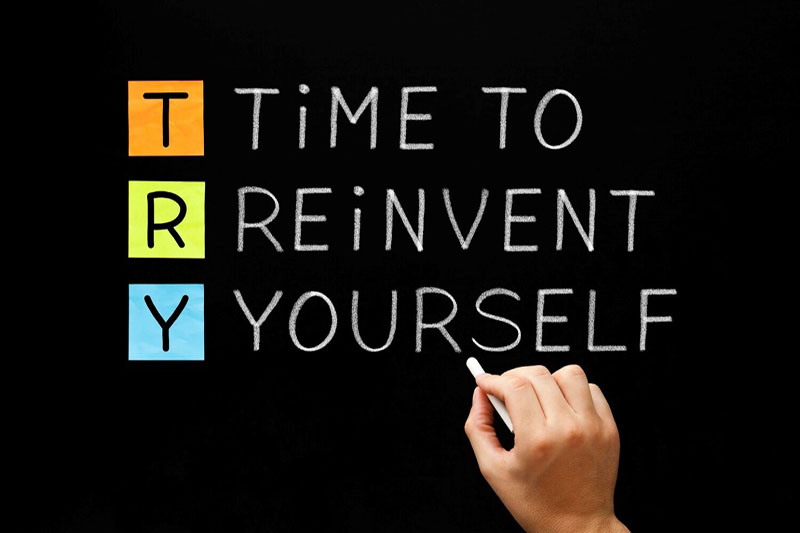The New Year – The Importance of New Beginnings
Whether you like going out to ring in the new year with a flute of champagne or you prefer to spend the evening in, New Year’s Eve gives us all a clean slate!
Why is New Year’s Eve worth celebrating? For many people, it’s more than an excuse to dress up and go out — it’s a symbol for starting over. It’s a precise moment for leaving some things in the past while embracing change and challenges. New Year’s Eve also gives us the chance to reflect on the previous year, because most of us are different people than we were 365 days ago.
When we’re celebrating New Year’s Eve what we’re really celebrating is the positive the changes we’ve made and the chance at new beginnings. The new year represents the possibility to become happier and healthier, not because crossing the midnight threshold on December 31st creates some kind of do-over magic, but because the turn of the calendar year inherently allows for a mental reset.
The first step to becoming happier often means changing the way we think. A study by Psychological Bulletin showed that the happiest people owe some part of their success to optimism and positive thinking. The New Year is an annual opportunity to alter our mindsets, to believe that we can change, that we can become better versions of ourselves.
“A New Year doesn’t automatically change us or our outlook on life, but it can serve as a natural starting line for changing both the way we think and the things we do.”
A big misconception about change, and the New Year, is that you need to make a resolution and accomplish it immediately. You need to lose weight as fast as possible, you need to start working out every day, or you need to completely change your diet on day one. Don’t get me wrong, these are great resolutions, but changing your diet, routines and body takes more than a snap of your fingers, it takes time and sometimes more than a few setbacks. What does this mean; if you don’t meet your goals on your first attempt, don’t beat yourself up. But also, don’t immediately lock yourself into the idea that a new start has to revolve around any one notion of becoming “better”. New beginnings can come in many shapes and forms, and here are just a few ways you can give yourself a new beginning that has the potential to become the new normal.
New Beginnings Mean You Can Try Something That Makes You Happy
Having a new beginning may be as simple as trying something new that makes you happy. This could be a popular resolution like working out more or eating better — these things do, over time, tend to make people healthier and happier. But if that’s not your thing, don’t force it! There are so many different ways the new year can bring you happiness.
For instance, a new hobby. This could be reading more, taking more photos, crafting, cooking, or another solo activity that allows you to gain new skills and explore your creative side. It could also include more social activities with people who have similar interests. Try something new that scares you a little, the best things happen outside of your comfort zone.
New Beginnings Are A Chance To Give Things Up That Make You Unhappy
Stop doing things that make you unhappy. A resolution doesn’t have to be adding something, it can be taking something away. Giving up unhealthy attachments or breaking a bad habit is a great way to start over. Quitting smoking and cutting back on alcohol both fairly common and totally respectable resolutions. The things you give up, don’t have to be just clear and extreme negative influences. Sometimes the things you need to let go of take on more subtle forms. If you don’t like going to the gym, try a new way to stay active like hiking, a sport league, or a class. If being on social media makes you unhappy, take a hiatus or consciously limit the time you spend on social platforms. The new year is a great time to give up anything that’s holding you back, unpacking a little emotional baggage is a great way to travel forward.
New Beginnings Allow For Setting New, Attainable Goals
Make goals that are measurable and attainable. A lot of people give up on New Year’s resolutions because they require both dedication and an actionable plan. That’s why it’s important to sit down, set a goal, and put a plan in place to start crushing that goal.
If you’re looking at major changes, like a new house or new job, set small, realistic goals — get your resume updated, apply for at least one new job every week, stop just looking at new apartments or houses and start scheduling visits. If you want to buy a new car, put a plan in place. Figure out your budget, determine when you want to buy a car, start saving every month, and start car shopping. Even if you can’t make the purchase for several months, due diligence will help you learn what to expect in your market.
Whatever you want to get done, put a plan in place first. A majority of people quit on long-term resolutions because they don’t have a strategy to succeed. Just remember, you can’t do it all at once — you have 365 days to accomplish a goal, it just takes dedication and preparation.
New Beginnings Are A Time To Start Prioritizing You
The importance of a fresh start means you can start targeting areas of self-care that are lacking. Consider a month when you do a self-care challenge, or take inventory of your mental and physical health — are you feeling stressed out? Try different methods of self-care that target stress. Are you feeling down on yourself? Try different methods that target positivity and self-worth. Maybe you just need to stop saying “yes” so frequently so you can have a little more time for self-care.
No matter what it is, take time out of your schedule to take care of you. Self-care starts with actually doing it — set an hour a day, a day of the week, or a few days a month, to focus on you and your well-being. This will help you escape the day-to-day routine of wake-up, work, eat, sleep, family obligations, repeat.
New Beginnings Can Launch Long-Term Action & Goals
The beginning of the year is a perfect place to start, but you may not finish it in the year you start it. Sometimes the things we need to accomplish will take much longer than 12 months. Saving for a home, getting out of debt, renovating your house, or even just creating an annual tradition can take years to truly complete. Longer-term goals can absolutely fit into your new year plan if you make your goal about initiation and consistency. You may not get your home remodeled this year, but you can create a savings plan, meet with contractors, or just make some progress on your to-do list. Don’t be afraid to make your resolution about starting and working toward a bigger goal.
Whether you’re trying to pick up a new habit or break an old one, the most important part of the new year/new beginning mentality is that you create a plan for success and stick to it. Hold yourself accountable, set deadlines and have your friends help hold you accountable. For some it also helps to create rewards for yourself as you hit milestones along the way. A road map, a support system and a desire for meaningful change will keep you motivated far beyond the end of January.
References from purehealthyliving.com











